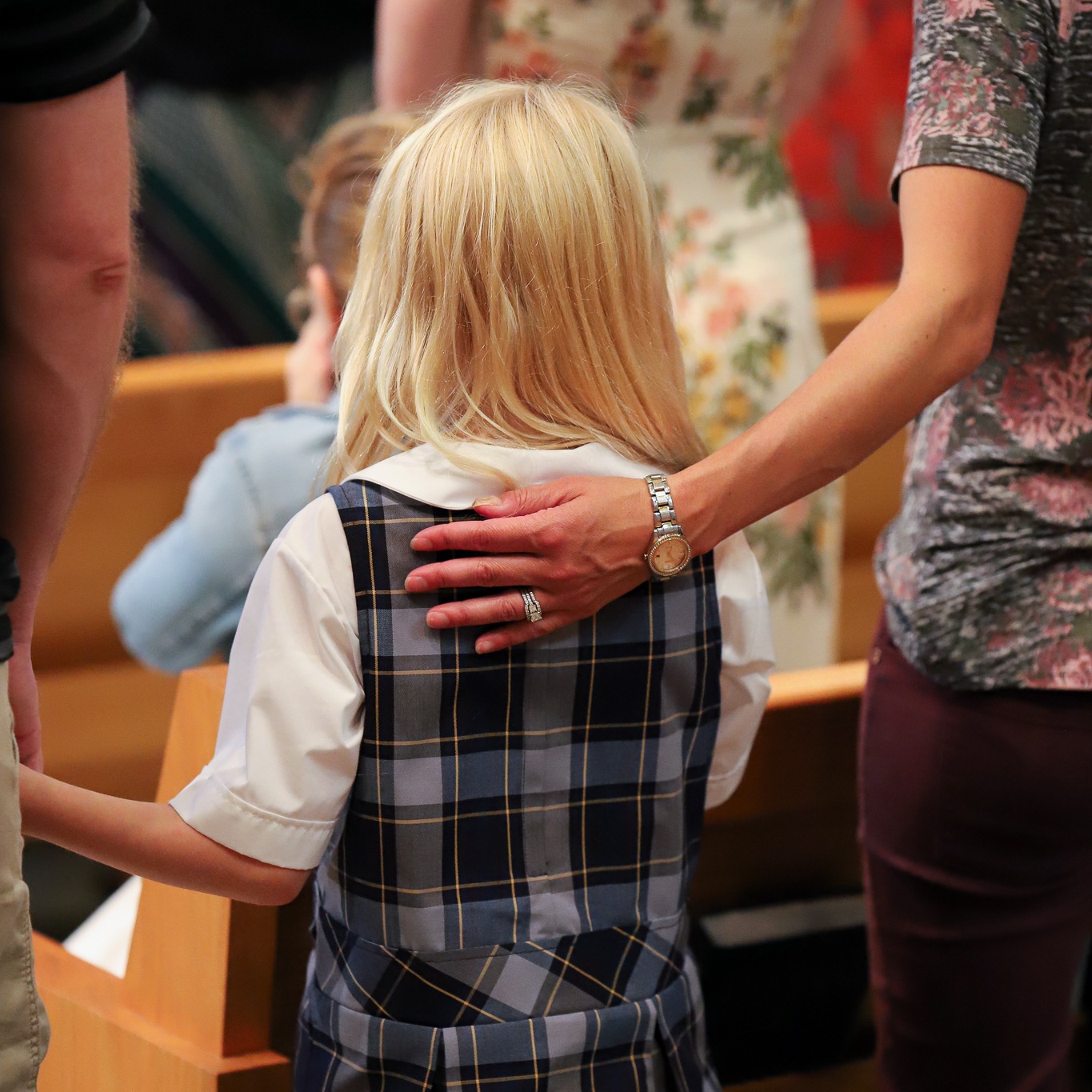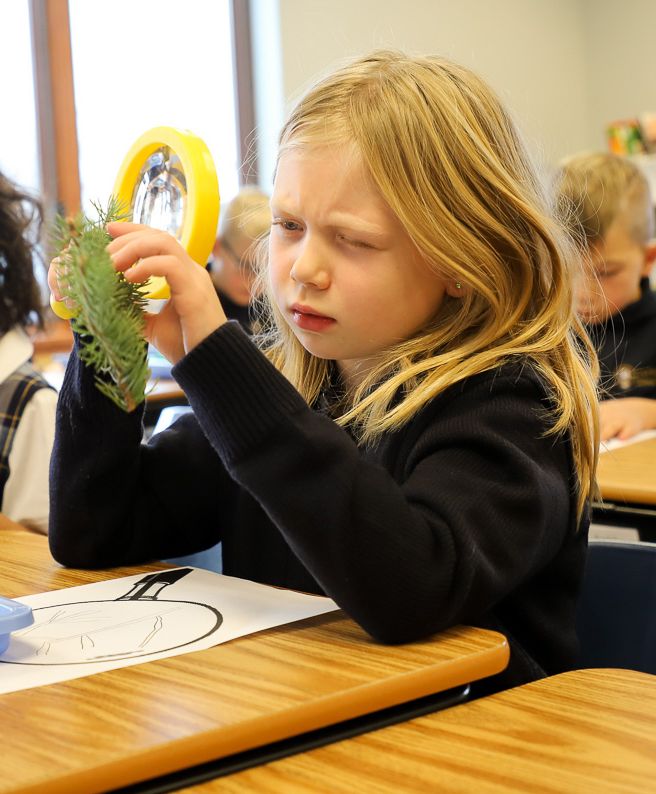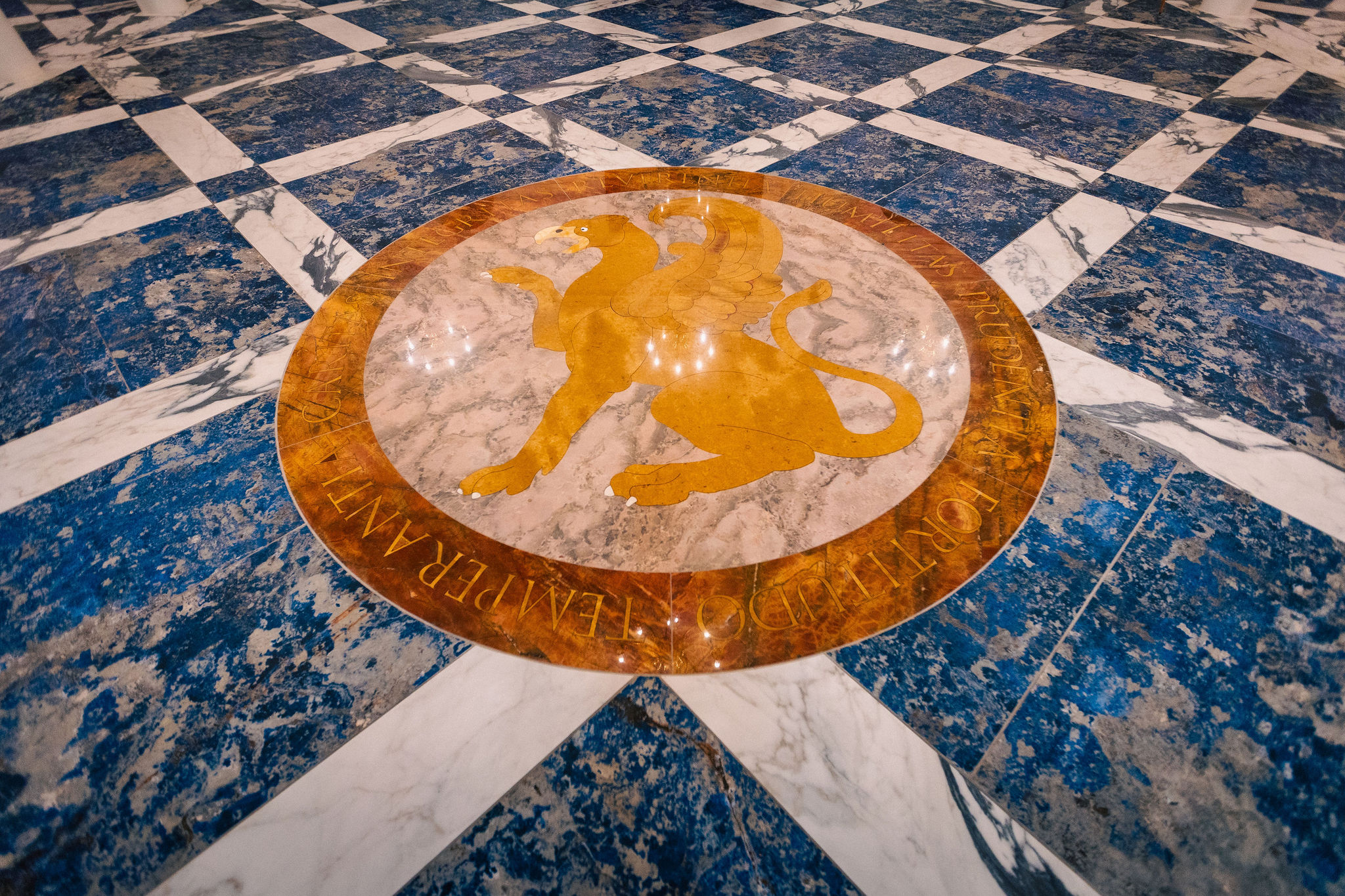
Mission and Model
Classical education within a Christian worldview.
Capstone Classical Academy engages students to acquire wisdom, cultivate virtue, and pursue rigorous academic study within a Christian worldview through the study of the Good, the True, and the Beautiful for the glory of God and the benefit of their community.

Primacy of Christian Discipleship
For two millennia, the classical liberal arts have been pursuing the question, "What is the Good Life?" Etched in the frieze over the front doors of our campus are the words "Ego veni ut vitam habeant," which is Latin for, "I have come that they may have life." These words of Jesus shape all that we do at Capstone. We educate so that our students will find The Good Life promised not just in the teachings but in the very person of Christ. St. Paul's great declaration that in Christ "all things hold together" governs the lens through which we write curriculum, teach classes, coach athletics, direct theatre, and even prepare lunch and dine together. We unreservedly say to our students, "Follow me as I follow Christ."


The Classical Model
The aim of classical education is to cultivate virtuous humans who live well. We believe education is not about information as much as it is about formation. It's about learning how to think rather than just what to think. It encourages us to love what is Good, to admire what is Beautiful, and to believe what is True. Classical Christian education finds the embodiment of Goodness, Truth, and Beauty in the historical person of Jesus Christ, the Son of God. Its methods are time-tested, engaging, and highly effective not just in cultivating skills but also wisdom and virtue.
First Things at Capstone
Our faculty, staff, and leadership share with the Capstone community the guiding principles of the academy.

First Things at Capstone articles
- Title
- Classical Christian Education Defined: Desiring Christ and His Kingdom
- Description
- This article explores the core philosophy of Capstone Classical Academy, emphasizing that a truly classical Christian education moves beyond academic excellence to the formation of a student's heart and desires. Drawing on the wisdom of thinkers like St. Augustine and Thomas Aquinas, it argues that education is never neutral and must aim to align a child’s affections with the love of Christ. Ultimately, the piece portrays the school as a partner to parents in "enchanting" students with the beauty of the Kingdom, ensuring they not only know what is true but delight in what is good.
- Author
- Paul Fisher
- Date
- Feb 16, 2026
- Title
- Classical Christian Education Defined: Informed Self-Rule
- Description
- In the classical Christian school, we submit the content and methods of education to Christ so that our students come under the spiritual influence of Goodness, Truth, and Beauty as a matter of the typical course of each day. To educate is not merely to transmit information but to form whole persons—minds alive to truth, hearts inclined toward the Good, wills disciplined in virtue, and souls oriented toward the Source of all wisdom. We distinctively, rigorously, and with joyful conviction seek not just to inform but to form well-informed, self-ruling human beings, graduating citizens prepared to steward their responsibilities within the polity of America and, above all, to serve as faithful citizens of the Kingdom of God.
- Author
- Paul Fisher
- Date
- Feb 2, 2026
- Title
- Classical Christian Education Defined: The Quadrivium
- Description
- This article explores the Quadrivium—arithmetic, geometry, music, and astronomy—and its central role in classical Christian education as a path to wonder, wisdom, and worship. It explains how these mathematical arts form the mind and soul, grounding modern science in a theological vision of a rational, ordered creation held together by Christ. Through the Quadrivium, students learn not merely to calculate, but to perceive truth, beauty, and meaning in God’s world.
- Author
- Paul Fisher
- Date
- Jan 19, 2026